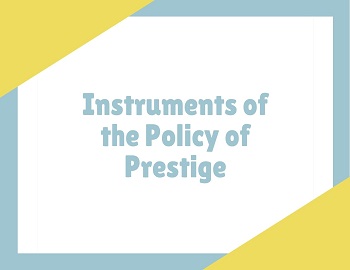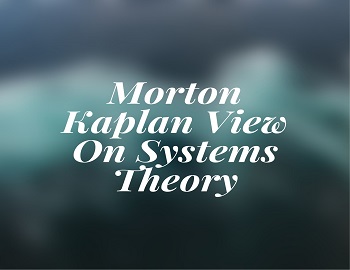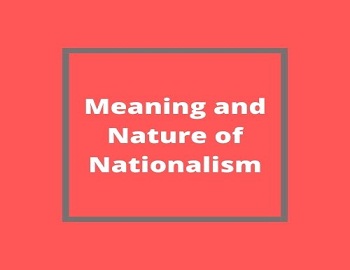Table of Contents
Instruments of the Policy of Prestige:
The instruments of the policy of prestige can be broken down into the following three headings-
Diplomatic Ceremonial:
The first instrument of demonstrating one’s power is through diplomatic ceremonies. Kings of Europe paid great attention to the question of the diplomatic ceremony, partly on the assumption that the resolution of such questions would be indicative of relative status and prestige, the government all over the world followed suit.
An interesting episode from the life of Napoleon shows clearly the symbols through which the powerful position of a ruler expresses itself in ceremonial form. In the year 1804 when Napoleon was to be crowned as Emperor by the Pope, each of the two made sincere efforts to show their superiority over the other in this ‘ceremonial device’. Napoleon, however, was successful in showing his superiority over the Pope by putting on the crown with his own hands. Napoleon also showed his superiority over the Pope by another interesting ceremonial device. Napoleon’s Minister of Police, General Duke of Rovigo reports in this matter as follows:
He went to meet the Pope on the road to Nemours. To avoid ceremony, the pretext of a hunting party was assumed; the attendants, with his equipages, were in the forest. The Emperor came on horseback and in a hunting dress, with his retinue. It was at the half-moon on the top of the hill that the meeting took place. There the Pope’s carriage drew up; he got out at the left door in his white costume; the ground was dirty; he did not like to step upon it with his white silk shoes, but was obliged to do so at last.
Napoleon alighted to receive him. They embraced; and the Emperor’s carriage, which had been purposely driven up, was advanced a few places, as if from the carelessness of the driver; but men were posted to help the two doors open; at the moment of getting in, the Emperor took the right doors, and an officer of the court handed the Pope to the left, so they entered the carriage by the two doors at the same time. The Emperor naturally sealed himself on the right, and this first step decided without negotiation upon the etiquette to be observed during the whole time that the Pope was to remain at Paris.
The diplomats are the symbolic representatives of their country. They represent their government in ceremonial functions such as state dinners, receptions, happy and sad occasions. The respect shown to these diplomats is the respect shown to their countries. The insult they get is the insult received by their countries. History is full of examples illustrating the importance given to them in International politics.
In 1946, when at a victory celebration in Paris, Soviet Foreign Minister was given a seat in the second row, while other representatives of great powers were allotted seats in the first row, the Soviet Foreign Minister left the function in protest. As the Potsdam Conference was held in the year 1945, the three great authorities of the world- Churchill, Stalin and Truman- did not agree to the points as to who should first enter the conference. In this way, these three leaders symbolized the power of their respective nations. However, in the later stage, it was decided that all should enter the conference room at one time through different doors.
Display of Military Force:
Besides the diplomatic ceremony as means to achieve its purpose, the demonstration of military force is another important instrument through which a nation can impress others with its power. At the two atomic bomb tests in the Pacific in 1946, the United States invited foreign observers to show them their superiority in technological achievements. The New York Times reported, “Twenty-one observers from the United Nations Atomic Energy Control Commission agreed today that the United States was bombing a group of ships larger than many of the world navies”. In this way, the United States impressed the other nations with technological achievements and with its naval superiority over others.
The success achieved by the Americans and the Russians in the space programmes enhanced America’s and Russia’s national prestige.
Since 1945, the most awesome displays of power have been the tests of the atomic and hydrogen bombs. Several nations have thus effectively paid attention to their nuclear developments.
The most important form of demonstrating military force is through mobilization. The mobilization of an army in the past and in the present by the great powers was clearly meant to show one’s own military strength and one’s own superiority over others.
The Roman stunt of parading armies to impress observers has continued in popularity up to the present. The Nazis used this very technique a great deal. With the advent of the modern navies, a variation of this very theme has been the naval demonstration.
Propaganda:
The third and last instrument of the policy of prestige is propaganda. Throughout history, statesmen have used the device of propaganda to impress other nations with the power their own nations actually possess. However, it is just in the 20th century that states have established permanent agencies for the exploitation of the possibilities of propaganda to achieve their purpose. Due to revolution in communication, expansion of educational facilities and development in the scientific sphere, propaganda has become a major instrument of the policy of prestige.
Now nations are busy in their attempts to attract other nations to their way of life. Now embassies contain certain ‘cultural attaches’ who use lectures, pictures posters etc. to glorify their country. The United States Informative Service “tells America’s story abroad”. Similar is the case with the British Council which performs similar functions for Britain.
In addition to the above methods, nations usually use some other devices also. In the Olympic games, the Russians, as well as the Americans, attempted to prove that their systems could produce athletes superior to those of other countries.
The Soviet leaders have used this device frequently to achieve their purposes. “Propaganda”, wrote Lenin, “is of crucial importance for the triumph of the party”. Russia made good use of slogans like “Workers of the world unite”. After their defeat in 1918, the German people were subjected to the propaganda that the German Army had never been defeated. Mussolini’s propaganda machine was successful and developed many techniques which the Nazis coped.









Comments (No)